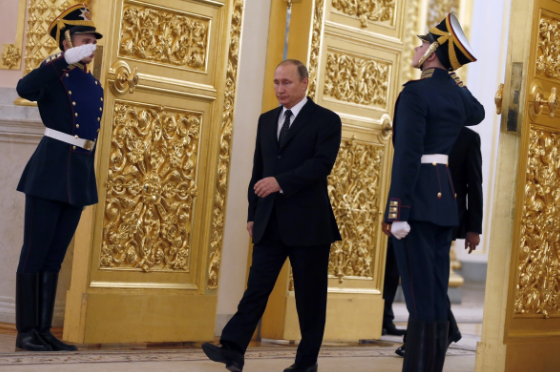
Russia’s Pro-War Community ‘Fracturing’ as Putin’s Invasion Falters: Report
By Xander Landen
Russia’s pro-war community is “fracturing” as its military has faced losses amid the invasion of Ukraine, a Friday report from the Institute for the Study of War (ISW) has found.
The report from the U.S.-based think tank noted Russia’s growing “siloviki faction,” which it described as people with meaningful power bases within Russian President Vladimir Putin’s inner circle who are fielding combat forces in Ukraine. Notably, this group is “led” by Yevgeny Prigozhin, a Russian billionaire and the financier of the Wagner Group, an elite paramilitary force linked to Putin, and sent mercenaries to fight in Ukraine.
The report noted recent criticism leveled by Chechen leader Ramzan Kadyrov against Russian military commander Colonel General Alexander Lapin in a “likely” response to a Ukrainian “strike on Chechen units in northeastern Kherson Oblast.” The Chechen leader said the strike killed 23 military members and wounded another 58.
“Kadyrov accused Lapin of failing to communicate with Chechen leaders, claiming that he had unsuccessfully attempted to reach Lapin to discuss Ukrainian breakthroughs around Lyman,” the ISW wrote, referring to the Ukrainian city of Lyman, which had been occupied by the Russian military for months before Ukraine’s military took it back a few weeks ago.
While Kadyrov has blasted Lapin, he has praised the Wagner Group and Prigozhin, the ISW said.
The report notes that the Chechen leader’s “critique of Lapin indicates a further fragmentation within the pro-war community that may allow Priogozhin to accrue more power in the long-term.”
“Putin will need to continue to appease the siloviki faction while attempting to support his disgraced higher military command and retain favor with the milbloggers that respect some conventional Russian military commanders such as Lapin and the Commander of Russian forces in Ukraine, Sergei Surovikin,” the ISW added.
Newsweek has reached out to the Russian and Ukrainian ministries of defense for comment.
Jaroslava Barbieri, doctoral researcher at the University of Birmingham, recently told Newsweek that Prigozhin may have “ulterior motives” as he deploys forces to the Donetsk region where Russian forces have been struggling to attack Ukrainian forces.
“He sees it as an opportunity to undermine Shoigu further and show the Kremlin the combat value of the Wagner Group while regular Russian military units continue to lose ground in other combat zones,” Barbieri said, referring to Russian Defense Minister Sergei Shoigu.
Shoigu announced on Friday that the process of drafting 300,000 reservists as part of Russia’s “partial mobilization” efforts launched last month had been completed. However, according to Friday’s ISW report, Russia could end up drafting an additional 110,000 troops.
Source: Newsweek
